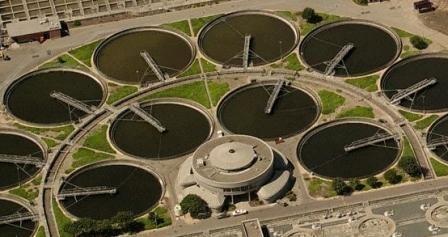
05/03/2015
Wastewater that produces green energy
Wastewater that produces green energy
Wastewater contains an elevated amount of chemical energy in the form of organic contaminants. In order to make use of this energy, researchers from around the world study ways to recover it in the form of hydrogen, a process which efficiently eliminates organic matter from wastewater. It not only reduces the amount of energy needed during the process, it also obtains energy from the produced hydrogen.
The key to achieve this is what is known as microbial electrolysis cells (MEC), a very special type of bacteria capable of generating electricity which in turn produces hydrogen.
At the UAB University that the Barcelona Synchrotron Park works with, Researchers from the Bioelectrochemistry group of the Department of Chemical Engineering have achieved to improve the energetic efficiency of the cells. The scientists, coordinated by professors Albert Guisasola and Juan Antonio Baeza, used real wastewater and achieved a biological production of hydrogen and, to a large extent, the recovery of a good part of the energy contained in the residues.
High hydrogen production and energy intensity were obtained through the wastewater treatment: these results are the basis for a potential industrial development of this technology and therefore for the creation of systems capable of producing hydrogen from wastewater treatment.
News based on the press release issued by the UAB.
The key to achieve this is what is known as microbial electrolysis cells (MEC), a very special type of bacteria capable of generating electricity which in turn produces hydrogen.
At the UAB University that the Barcelona Synchrotron Park works with, Researchers from the Bioelectrochemistry group of the Department of Chemical Engineering have achieved to improve the energetic efficiency of the cells. The scientists, coordinated by professors Albert Guisasola and Juan Antonio Baeza, used real wastewater and achieved a biological production of hydrogen and, to a large extent, the recovery of a good part of the energy contained in the residues.
High hydrogen production and energy intensity were obtained through the wastewater treatment: these results are the basis for a potential industrial development of this technology and therefore for the creation of systems capable of producing hydrogen from wastewater treatment.
News based on the press release issued by the UAB.
More news
16/09/2014
SENER awarded its first contract with Embraer
09/09/2014
From brick to neuron
02/09/2014
The UAB University is strengthening its position in the Shanghai ranking
27/08/2014
Ascamm develops a drone for rescues
20/08/2014
SENER and ESA reach an agreement for the prime contractor role on the Proba 3 mission
06/08/2014
The Catalan Institute for Nanoscience and Nanotechnology receives the Severo Ochoa accreditation









